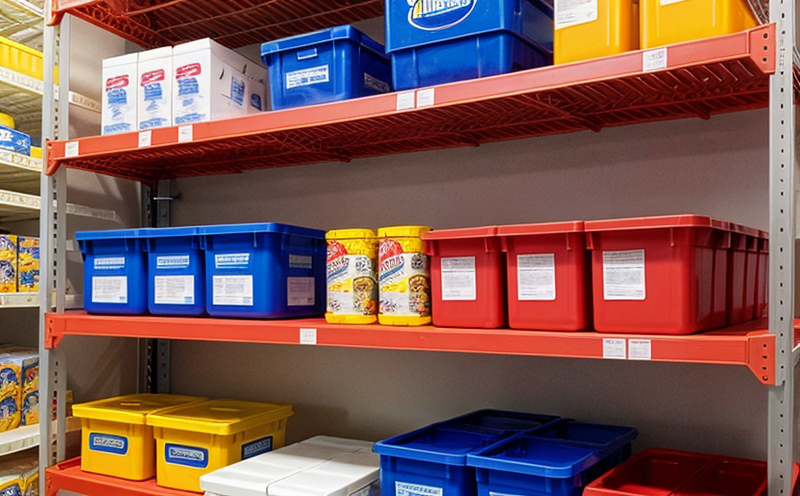ISO 54971 Shelf Life Testing in Functional Foods
The shelf life of functional foods is a critical factor that influences product quality, safety, and consumer satisfaction. ISO 54971 provides a standardized approach to determine the shelf life of these products, ensuring they remain safe and effective until their expiration date. This method focuses on the chemical stability of functional ingredients, which are often added to enhance nutritional value or provide specific health benefits.
Functional foods encompass a wide range of products, including fortified cereals, energy drinks, probiotic yogurt, and omega-3-enriched snacks. These items can be particularly challenging for shelf life testing because they contain multiple ingredients that may interact with each other over time, affecting both the product’s stability and its efficacy.
ISO 54971 outlines specific procedures to ensure accurate determination of shelf life based on chemical analysis rather than relying solely on sensory or microbiological indicators. This approach is crucial given the complexity of functional ingredients, which may degrade in ways not immediately apparent through standard methods like visual inspection or microbial counts.
The test involves subjecting samples to controlled conditions that simulate real-world storage environments, including temperature and humidity variations. Specimens are then analyzed periodically over extended periods to monitor changes in chemical composition. By adhering strictly to ISO 54971 protocols, laboratories can provide reliable data about when a functional food product no longer meets its intended specifications.
It’s important for manufacturers of functional foods to conduct such testing early in the development process so they understand how different storage conditions will impact their products. Early identification allows adjustments to be made before launching into mass production, ensuring compliance with regulatory requirements and maintaining brand reputation.
The implications extend beyond just meeting legal standards; understanding shelf life helps companies optimize supply chains by forecasting demand more accurately based on expected consumption rates within given timeframes. Additionally, accurate shelf life information enables better communication between producers and consumers regarding how long a product should remain viable after opening or purchase.
In summary, ISO 54971 plays an indispensable role in ensuring the integrity of functional foods throughout their lifecycle from production through to consumption by end-users. Its application ensures not only compliance with international standards but also contributes significantly towards enhancing consumer trust and satisfaction.
Why It Matters
- Ensures Safety: By accurately determining the shelf life of functional foods, potential risks associated with consuming outdated or decomposed products are minimized.
- Promotes Quality Control: Regular testing helps maintain consistent quality across batches and ensures that all products meet specified criteria before release to market.
The ability to predict the shelf life of functional foods accurately can significantly enhance product safety, thereby protecting consumers from potential health risks linked with expired or improperly stored items. This not only builds consumer confidence but also strengthens brand loyalty among users who value freshness and efficacy in their dietary supplements or enhanced nutritional products.
Benefits
- Enhanced Consumer Confidence: Providing clear shelf life information fosters trust between manufacturers and consumers, leading to increased market acceptance of functional food products.
- Informed Marketing Decisions: Understanding the exact duration a product remains stable allows marketers to target specific consumer segments effectively based on their purchasing habits and preferences.
Accurate shelf life testing provides several advantages beyond mere compliance with regulations. It contributes to improved product quality, extended freshness periods, reduced waste due to spoilage, enhanced brand reputation, and ultimately increased sales through better inventory management strategies supported by precise expiration dates.
Industry Applications
- Fortified Cereals: Ensuring that added vitamins or minerals do not degrade prematurely during prolonged storage.
- Energy Drinks: Verifying the sustained presence of caffeine and other stimulants to maintain consistent performance levels over time.
Functional foods span various categories, each requiring unique considerations regarding shelf life. For instance, energy drinks need to preserve their stimulating effects throughout their shelf life, while probiotic yogurt must retain live cultures without compromising taste or texture. The application of ISO 54971 ensures that these specific needs are met, providing valuable insights into maintaining optimal product quality.
By leveraging this standard across diverse functional foods, companies can ensure they meet stringent regulatory standards while also optimizing their operations for efficiency and cost-effectiveness.





